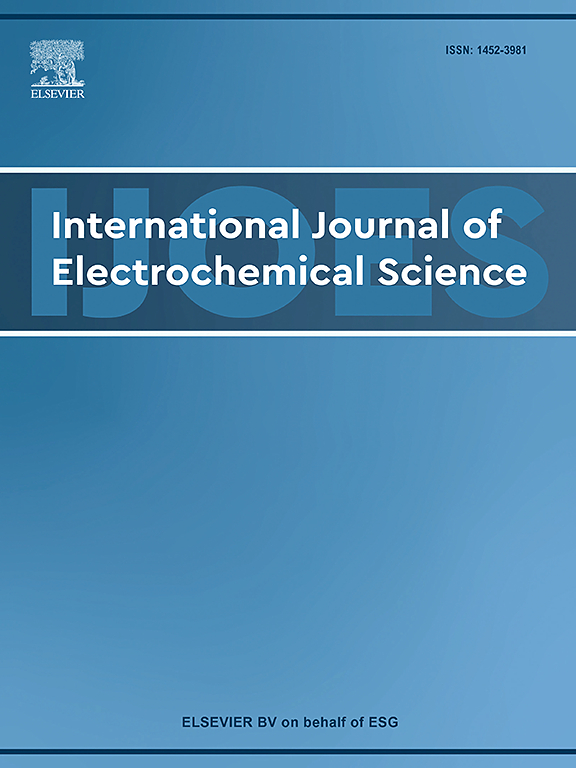可持续农业水处理和资源回收的电化学技术
IF 1.3
4区 化学
Q4 ELECTROCHEMISTRY
International Journal of Electrochemical Science
Pub Date : 2025-04-11
DOI:10.1016/j.ijoes.2025.101029
引用次数: 0
摘要
电化学技术作为模块化、低化学和节能的解决方案正在兴起,用于农业水流的处理和增值。本文综述了电絮凝、电浮选、电渗析、电容去离子、电化学高级氧化和电还原等六个核心电化学过程的最新进展,并评估了它们在去除沉积物、营养物、盐类、有机微污染物和病原体方面的有效性。我们比较了台架、试验和现场规模研究的去除效率、资源回收率、能源消耗和操作挑战。主要的见解包括通过电凝实现高磷回收率(> 99% %),通过电渗析实现肥料再利用的选择性硝酸盐浓度,微盐灌溉水电容去离子的能量足迹低于千瓦时m(⁻³ ),以及使用高级氧化阳极对持久性农药的降解>; 99% %。展望未来,我们确定了三个关键的研究重点:(1)开发适合复杂农业基质的低成本,抗污垢电极材料;(2)将电化学单元与可再生能源和生物抛光相结合,实现循环最大化;(3)技术经济评估和长期现场演示,以验证在可变农场条件下的性能。解决这些差距将加速分散式电化学水处理系统的部署,从而促进养分循环,保护水资源,增强农业景观的复原力。本文章由计算机程序翻译,如有差异,请以英文原文为准。
Electrochemical technologies for sustainable agricultural water treatment and resource recovery
Electrochemical technologies are emerging as modular, low-chemical, and energy-efficient solutions for treating and valorizing agricultural water streams. This review synthesizes the state-of-the-art in six core electrochemical processes—electrocoagulation, electroflotation, electrodialysis, capacitive deionization, electrochemical advanced oxidation, and electro-reductive pathways—and evaluates their effectiveness for removing sediments, nutrients, salts, organic micropollutants, and pathogens. We compare removal efficiencies, resource-recovery yields, energy consumption, and operational challenges across bench-, pilot-, and field-scale studies. Key insights include the high phosphorus recovery (>99 %) achievable via electrocoagulation, selective nitrate concentration by electrodialysis for fertilizer reuse, sub-kWh m⁻³ energy footprints of capacitive deionization for brackish irrigation water, and > 99 % degradation of persistent pesticides using advanced oxidation anodes. Looking ahead, we identify three critical research priorities: (1) development of low-cost, fouling-resistant electrode materials tailored for complex agricultural matrices; (2) integration of electrochemical units with renewable energy sources and biological polishing to maximize circularity; and (3) techno-economic assessments and long-term field demonstrations to validate performance under variable on-farm conditions. Addressing these gaps will accelerate deployment of decentralized electrochemical water treatment systems—advancing nutrient circularity, safeguarding water resources, and enhancing resilience of agricultural landscapes.
求助全文
通过发布文献求助,成功后即可免费获取论文全文。
去求助
来源期刊
CiteScore
3.00
自引率
20.00%
发文量
714
审稿时长
2.6 months
期刊介绍:
International Journal of Electrochemical Science is a peer-reviewed, open access journal that publishes original research articles, short communications as well as review articles in all areas of electrochemistry: Scope - Theoretical and Computational Electrochemistry - Processes on Electrodes - Electroanalytical Chemistry and Sensor Science - Corrosion - Electrochemical Energy Conversion and Storage - Electrochemical Engineering - Coatings - Electrochemical Synthesis - Bioelectrochemistry - Molecular Electrochemistry

 求助内容:
求助内容: 应助结果提醒方式:
应助结果提醒方式:


